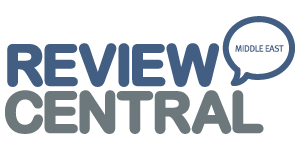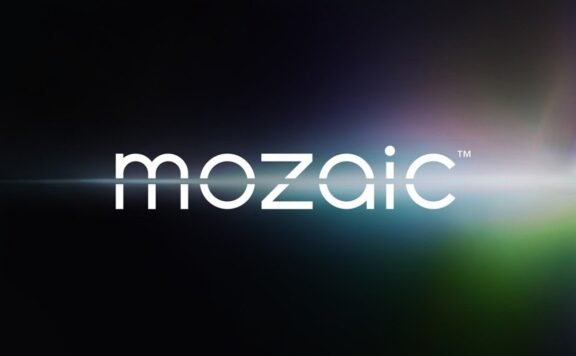The Higher Colleges of Technology (HCT) will herald the 2024-2025 Academic Year, starting in August 2024, with a raft of applied Bachelor and vocational Diploma programs, as the foundation of its “Shaping the Future” educational model that was launched in May 2023.
In addition, the UAE’s largest applied higher education institution expects to welcome more than 5,300 new students in the first semester, including 3,000 students at the Diploma level. HCT students will also be given the opportunity to undertake professional certifications.
HCT’s Shaping the Future model is underpinned by the pillar of inclusivity that allows for the expansion of programs and enhanced students’ educational opportunities, according to their abilities, interests, and the job market needs; and the pillar of integrity, which sees HCT building partnerships that nurture students’ training and employment opportunities, through work experiences and its Apprenticeship Program, which has already benefitted 6,180 Diploma and Bachelor students.
Celebrating the one-year anniversary of its transformative education model, Dr. Faisal Alayyan, HCT President & CEO, at a press conference held at the HCT-Dubai Academic City Campus, revealed that HCT enrolled more than 7,000 male and female students in the 2023/2024 academic year after re-engineering its educational approach to offer 12 new vocational diploma programs. In addition, Dr. Alayyan noted that HCT enjoyed a 75% graduate employment rate for that period, due to significant collaborations with private and public sector entities.
Dr. Alayyan was joined by Sumaya Abdulaziz Al Hosani, HCT Vice President for Strategy and the Future at HCT, Dr. Luc Verburgh, HCT Chief Academic Officer, program Executive Deans and other senior HCT officials. Dr. Alayyan announced the latest developments and initiatives for the upcoming academic year and unveiling an array of impressive results of HCT’s Shaping the Future educational model.
Dr. Alayyan said that HCT will continue to work according to a clear and future-focused vision that aims to achieve a qualitative shift in applied education in line with national ambitions and the UAE’s economic agenda. He added that HCT’s focus is to build competencies that reinforce Emirati excellence, locally and globally, while HCT continues to build on its position as the UAE’s largest applied higher educational institution.
With more than 92,000 graduates, HCT has become the largest contributor of skilled Emirati cadres to the job market, confirming HCT’s commitment to developing partnerships and initiatives that support its role as a key contributor of Emirati competencies to the private sector.
Dr. Alayyan added: “HCT launched our new educational model in 2023 to answer the new demand of the job market. We also announced plans to offer three study tracks for students, where the vocational diploma program was added to the applied bachelor’s program, which created new opportunities for hundreds of students according to their abilities and interests. Today, HCT is preparing to add the third track – “professional certificates” linked to career accelerators, which will increase students’ options according to job market requirements.”
“HCT’s responsibility to our students does not end at graduation, as the employment process for graduates is a key strategic goal that we work on. Last year, we signed collaboration and partnership agreements with organizations from the public and private sectors to offer training and employment opportunities for students and graduates. We also signed a strategic partnership with Nafis to attract students to study health sciences and work in private health sector institutions,” he added.
Dr. Alayyan revealed that the latest batch of graduates for the 2022/2023 year, comprised of 2,600 students, achieved a 75% employment rate. This is in addition to the 72% employment rate of the 12,303 HCT students graduating between 2019 and 2023, equivalent to 8,895 graduates.
“Achieving the ambitions of building competencies that support the UAE’s efforts to become a competitive global economic power lies on educational institutions. Their role and success in achieving this is supported by the determination of all concerned parties in society to work together. We aim to build more partnerships with business sectors to ensure students’ permanent connection to the labor market. HCT’s plans start from the labor market and end with it,” Dr. Alayyan said.
Speaking on the topic of Online connectivity and apprenticeship, Ms. Sumaya Abdulaziz Al Hosani said: “HCT’s strategy seeks to enhance capabilities and talents and promote Emirati excellence that aspires to leadership and globalization. Our programs are offered based on a realistic study of the labor market in light of the electronic link between the campuses and both the Ministry of Human Resources and Emiratisation and the Ministry of Education, to know the current and future job requirements, especially since we are dealing with an open, changing, and competitive vocational market. Along with offering new programs, it is essential to review and develop existing programs to ensure the availability of diverse options for students.”
“Last year, we developed the Applied Media program, which will be available in the 2024/2025 academic year with a Bachelor of Design and Media Production and Bachelor of Digital Media, in addition to 15 other programs, currently being reviewed and developed to be offered in line with developments in the labor market,” she added.
“HCT implemented the Apprenticeship Program during the 2023/2024 year. In that period, 6,180 students, comprising both males and females, benefited from the program, spanning across approximately 30 majors at the Bachelor and Diploma programs. By undertaking apprenticeships in organizations, students have a preview of their future careers, especially in the private sector.
“The program supports applied education and future employment opportunities for students and allows them to obtain a certificate of experience after completing the training period. This next academic year will witness an expansion in the implementation of the program. The program consists of 16 weeks of full-time training at the training institution for bachelors students, and 3 semesters of full-time training, split between HCT and the training institution, for diploma students,” Ms. Alhosani said.
Dr. Luc Verburgh highlighted HCT’s efforts and initiatives that were implemented under the new educational model to enhance academic performance and support applied education.
He said the introduction of new educational tracks required highly qualified faculty with renowned international experience in applied education. Dr. Verburgh noted that HCT welcomed 75 new academic staff members in the previous academic year, while this year, HCT has attracted over 110 additional academic staff members to handle the expanded programs.
Dr. Verburgh noted that to enhance the professional development of academic staff members and ensure that they remain constantly updated with the job market needs, HCT has launched its Outbound Industry Sabbatical Leave initiative.
He said the initiative offers faculty members the chance to spend a sabbatical period of approximately one month in a workplace setting, during which they gain insights into the latest experiences, applications, and practical methodologies relevant to their field.
“This opportunity allows faculty members to engage in hands-on experimentation with cutting-edge technologies and market experiences. They can then leverage these insights to enhance their teaching methodologies and impart practical knowledge to their students, thereby fostering the development of applied skills,” Dr. Verburgh said.






